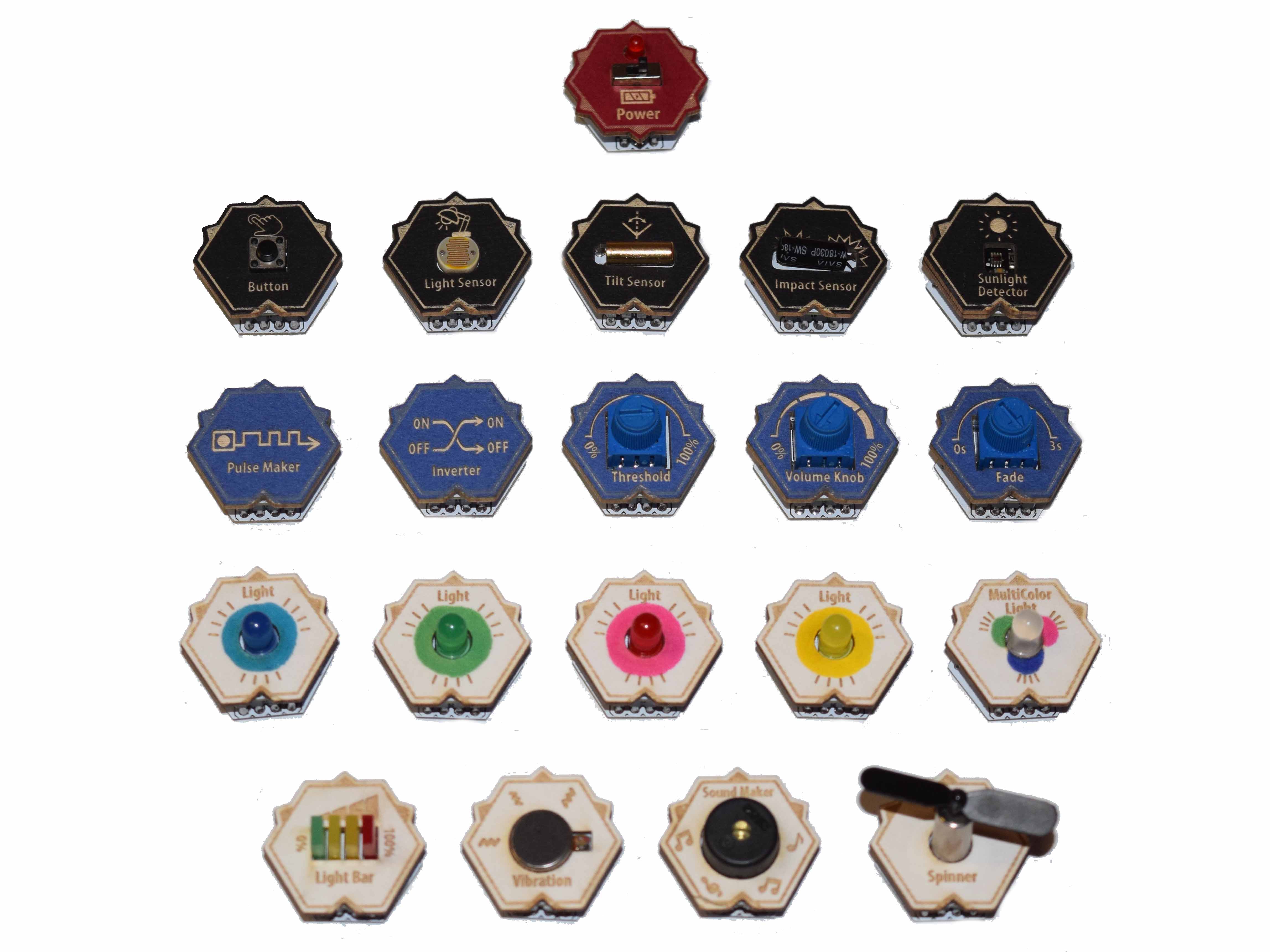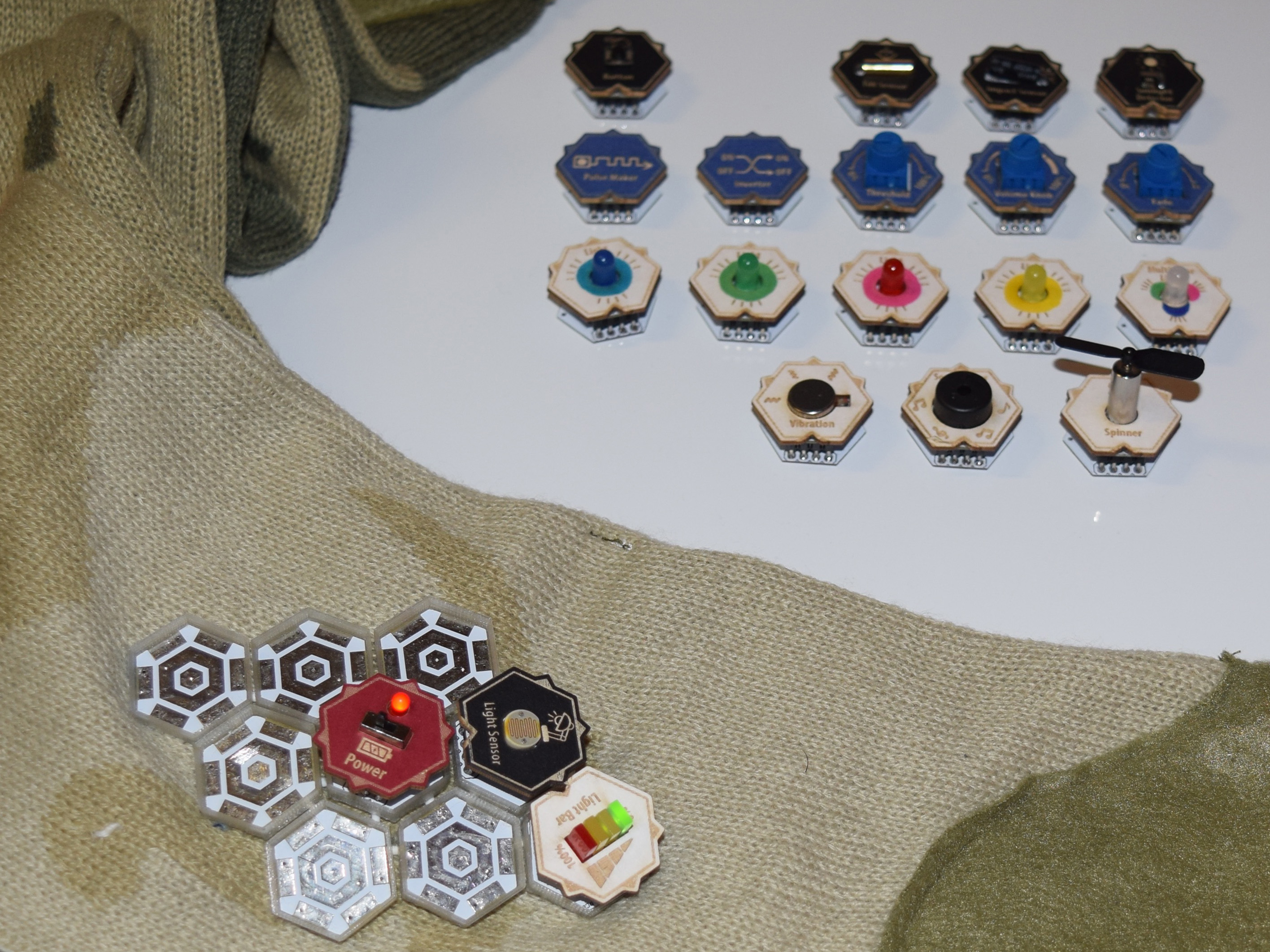Join the MakerWear team!
We are looking for talented, creative, and self-motivated undergrad research assistants in EE and CS to work on the future of wearables and electronic construction kits. Our research group (The Makeability Lab in the HCIL) is investigating new approaches to support novice makers and children in the design, play, experimentation, and construction of interactive wearable e-textiles.



We are specifically looking for students with one or more of the following qualities and with a keen interest in expanding abilities in these areas:
-
 Experience in rapid prototyping with physical materials and working with embedded systems (e.g., working with Arduino, sensors, actuators).
Experience in rapid prototyping with physical materials and working with embedded systems (e.g., working with Arduino, sensors, actuators). -
 Experience in designing with microcontrollers such as the ATmega328 and ATtiny85 to create standalone systems.
Experience in designing with microcontrollers such as the ATmega328 and ATtiny85 to create standalone systems. -
 Experience in PCB manufacturing and design with Eagle or Altium Designer.
Experience in PCB manufacturing and design with Eagle or Altium Designer. -
 Experience in wireframing, mockuping and prototyping with Android devices.
Experience in wireframing, mockuping and prototyping with Android devices.
You will be working in the HCIL Hackerspace, will attend weekly research group meetings, and will join a team of other talented undergraduate and graduate students. Our short term goal is a publication at CHI2017 and then to UIST2017.
For best consideration, please read this page about undergraduate research and then send your CV and unofficial transcripts to majeed@cs.umd.edu and CC jonf@cs.umd.edu by May 15th. We will contact a subset of qualified candidates to setup interviews and request other materials.
Please feel free to forward this announcement.
More Details on MakerWear
Electronic textile (e-textile) toolkits have been successful in broadening participation in STEAM-related activities, expanding perceptions of computing, and empowering users to engage in meaningful design that is creative, self-expressive, and personal. While a range of well-designed e-textile kits exist (e.g., Arduino Lilypad, Flora), they are primarily targeted at older youth and adults and require programming, a basic understanding of circuits, and craft skills like sewing. Though this complexity allows users to create diverse and increasingly sophisticated designs, it also presents significant challenges to young children and can impede rapid prototyping of ideas.
Our research group (The Makeability Lab at the HCIL) is investigating new approaches to support younger children (ages 5-10) in the creative design, play, experimentation, and construction of interactive wearable e-textiles—a large, ongoing research agenda that we call MakerWear.
Our Recent Publications on MakerWear
ReWear: Early Explorations of a Modular Wearable Construction Kit for Young ChildrenMajeed Kazemitabaar, Liang He, Katie Wang, Chloe Aloimonos, Tony Cheng, Jon E. Froehlich
CHI '16 Extended Abstracts (To Appear)
MakerShoe: Towards an E-Textile Construction Kit to Support Creativity, Playful Making, and Self-Expression
Majeed Kazemitabaar, Leyla Norooz, Mona Leigh Guha, Jon E. Froehlich
IDC '15 Extended Abstracts